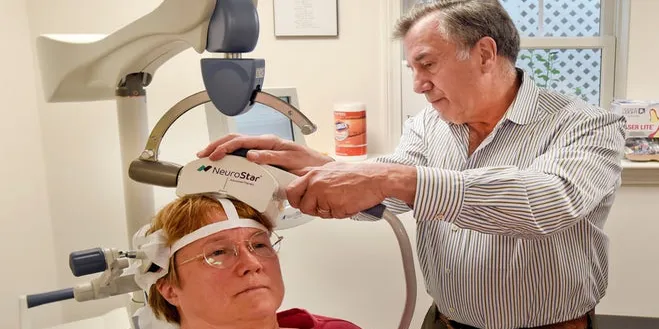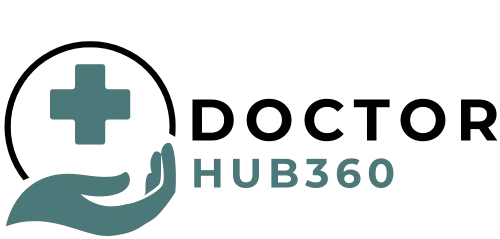Beyond Medication: Concierge TMS and the Future of Depression Treatment

Concierge TMS is a specialized mental health service based in Massachusetts, USA, devoted to addressing clinical depression through advanced neurostimulation therapy. The clinic focuses primarily on Transcranial Magnetic Stimulation (TMS), a cutting-edge, non-invasive treatment designed for patients who have not responded well to traditional antidepressant medications. The increasing prevalence of clinical depression globally has generated significant demand for innovative approaches like Concierge TMS, which offers hope for effective symptom relief without the side effects commonly linked to pharmaceutical treatments.
Understanding Clinical Depression
Clinical depression, also known as major depressive disorder, is a serious mental health condition that affects millions of people worldwide, disrupting mood, thought patterns, and daily functioning. It manifests through persistent feelings of sadness, hopelessness, fatigue, and a loss of interest in activities once enjoyed. Traditional treatment options typically include psychotherapy and antidepressant medications; however, these methods do not always work effectively for every patient. Some individuals endure long-term depression, resistance to medication, or intolerable side effects, which has fueled the search for alternative therapies such as TMS.
What is Transcranial Magnetic Stimulation (TMS)?
Transcranial Magnetic Stimulation (TMS) is a revolutionary form of brain stimulation therapy that uses magnetic pulses to stimulate specific areas of the brain linked to mood regulation. This procedure involves placing a magnetic coil against the patient’s scalp, which generates brief magnetic pulses that pass through the skull and influence neural activity in targeted brain regions. Unlike electroconvulsive therapy (ECT), TMS is non-invasive, does not require anesthesia, and has minimal side effects. Patients remain awake and alert during treatment sessions, which typically last between 20 to 40 minutes over several weeks.
How Concierge TMS Implements Treatment
Concierge TMS employs highly trained clinicians and the latest TMS technology to offer personalized treatment plans tailored to each patient’s unique needs. The service begins with a comprehensive clinical evaluation to diagnose and assess the severity of the depression. This evaluation helps determine whether TMS is the most appropriate treatment option. Once approved, patients undergo a series of TMS sessions, typically five days a week for four to six weeks. Progress is closely monitored throughout the treatment regimen to adjust protocols for maximum effectiveness.
Benefits of Concierge TMS for Clinical Depression
Concierge TMS provides many benefits for individuals suffering from clinical depression. First and foremost, TMS treatment is well-tolerated with few significant side effects, which makes it an attractive alternative to medication for some patients. Many report improvement in mood, energy levels, and overall quality of life after completing TMS therapy. Furthermore, because the treatment is targeted and non-systemic, it avoids common drug-related side effects such as weight gain, sexual dysfunction, or gastrointestinal issues. Concierge TMS’s patient-centered approach also ensures that therapy is accessible, convenient, and closely supervised for safety and success.
Scientific Basis and Effectiveness of TMS
Decades of research support the effectiveness of Transcranial Magnetic Stimulation in treating major depressive disorder, especially for patients who have not responded to antidepressant medications. Multiple clinical trials have demonstrated significant reductions in depressive symptoms following TMS therapy, with some patients achieving full remission. The U.S. Food and Drug Administration (FDA) approved TMS for treatment-resistant depression in 2008, and ongoing studies continue to refine protocols and expand its applications, including for anxiety and other mental health disorders. Concierge TMS in Massachusetts leverages this scientific foundation to provide evidence-based care.
The Patient Experience at Concierge TMS
At Concierge TMS, the patient experience is prioritized to reduce anxiety and foster a supportive environment throughout treatment. Patients receive detailed information about the process, what to expect during sessions, and potential outcomes. The clinic’s staff are trained to provide compassionate care, answer questions, and offer emotional support, which can be crucial for those struggling with depression. Many patients describe their experience as empowering, as they actively participate in their recovery journey supported by advanced technology and attentive clinical guidance.
Accessibility and Future Directions
One of the main challenges in mental health care is accessibility to specialized treatments like TMS. Concierge TMS aims to address this by providing comprehensive mental health services in Massachusetts, striving to make TMS a feasible option for a broader population. As technology advances and awareness grows, the clinic continues to innovate its treatment protocols and expand its reach. Future directions for Concierge TMS may include integrating TMS with other therapies such as psychotherapy or medication management, as well as exploring new neurostimulation techniques to further improve outcomes.
Conclusion
Concierge TMS in Massachusetts represents a promising and progressive solution for individuals battling clinical depression who require alternatives to traditional treatment methods. By focusing on Transcranial Magnetic Stimulation, this mental health service offers a scientifically supported, non-invasive therapy option that can significantly improve quality of life. As clinical depression remains a major global health concern, Concierge TMS’s commitment to personalized, patient-centered care highlights the potential for neurotechnology to transform mental health treatment and bring relief to those in need.
